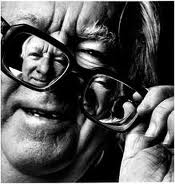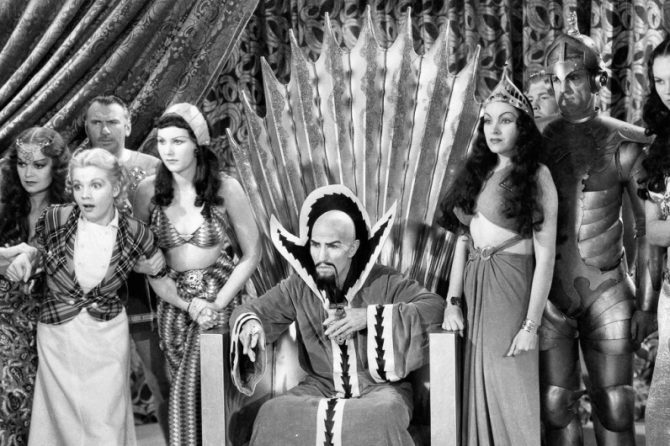No. 17 – 2013May26 – Ray Bradbury, Fahrenheit 451, and Book Burning.

Ray Bradbury would have you believe that he only wrote a single science fiction story. The rest, he claims, are actually fantasy yarns. That story was the first book of his that I ever read. It was an assignment for a high school English class, if I remember correctly. Okay. You’ve been wracking you brain and you can’t guess? Give up? Okay. I’ll relent: Fahrenheit 451.
“You don’t have to burn books to destroy a culture. Just get people to stop reading them” –Ray Bradbury
Ray was born in 1920 in Waukegan, Illinois. In his stories, Waukegan becomes “Green Town,” a town he uses repeatedly in his fiction. “Green Town” is personal nostalgia, a metaphor of the disappearing of the American heartland small town … and an intimate portrait of close knit human relationships. By 1931, at age eleven, Ray was writing his own stories. He often wrote on butcher paper. During The Great Depression, it was the most convenient thing available.
In 1926-27 & 1932-33, his father went Tucson, Arizona for work (and then moved back). Then in 1934, he moved the whole family, with only $40.00 in his pocket, to Los Angeles. Well, Ray was nuts about being in Hollywood. He got good at sneaking into the Uptown Theater on Western Avenue in Hollywood. Ray was: “hell-bent on getting autographs from glamorous stars. It was glorious.”

Ray almost climbed on the stage himself, so strong was the pull of magic. Ray witnessed a performance by Mr. Electrico who touched a sword point to a young man’s nose and shouted “…Live Forever!” The young man’s hair suddenly stood on end and that nearly converted Ray into a magician. From that moment on, he says: “…I began to write fulltime. I have written every single day of life since that day 69 years ago.”
Ray, thrilled to have access to stars, got hired at fourteen to write for the Burns and Allen show. Ray continued to write teleplays through out his life, including credits to The Twilight Zone, Alfred Hitchcock Presents, and Alfred Hitchcock Hour, The Ray Bradbury Theater, and numerous others.

When 1936 rolled in, Ray, at the age of sixteen, joined a weekly Thursday-night conclave of Los Angeles Science Fiction Society. Then in 1938, Ray began publishing science fiction stories in fanzines. Ray was also a contributor, from 1940 to 1947, to a film magazine called Script.
Ray acknowledges the influence of many science fiction writers: Theodore Sturgeon, A. E. van Vogt, Robert A. Heinlein, and Arthur C. Clarke. He gives special credit, however, to both H. G. Wells and Jules Verne. Ray confesses that he also used to imitate Edgar Allen Poe in his attempts at horror stories. And let’s not forget Edgar Rice Burroughs. He liked John Carter, The Warlord of Mars so much that he wrote his own sequel. Ray would lie awake at night and listen to radio episodes of Chandu the Magician. After it went off the air, Ray would write out the entire show.

Ray wrote The Fireman, which was published later as Fahrenheit 451. To type the story, he rented a UCLA Powell library typewriter at $0.20/hr.; the 50,000 word story costs him $9.80 to type up. That’s 49 hours; or, at 1,020 words an hour, it’s 17 words per minute. (Go ahead … check my math, and then get back to me. I’m no mathematician.)

In an interview with The Paris Review he said:
“You can’t learn to write in college. It’s a very bad place for writers because the teachers always think they know more than you do—and they don’t.”
Ray praises libraries; it was where he educated himself. He didn’t believe in colleges and universities.
“I believe in libraries because most students don’t have any money. When I graduated from high school, it was during the Depression and we had no money. I couldn’t go to college, so I went to the library three days a week for 10 years.”

I will always associate Ray Bradbury with Halloween, I suppose, because so many of his stories remind me of late fall: The Halloween Tree, The October Country, The Autumn People, even the title of The Golden Apples of the Sun gets me thinking about harvest time and raking leaves.

Dandelion Wine is a tribute to summer in small town America. A neighbor’s Happiness Machine is a dismal failure; the Green Machine doesn’t really kill another neighbor; and is the Tarot Witch really trapped in wax? The kids in town are convinced that the town’s is full of magical occurrences.
In many ways, each chapter is a complete story; like Norman Rockwell still lives, they are nostalgic vignettes about a lost America, with a Rod Serling-esque twist. I find the prose within these stories compelling and intimate. They are portrayals of youth, the coming of age for a generation.
Dandelion Wine, Farewell Summer, and Something Wicked This Way Comes are often thought of as a series/trilogy although Something Wicked~ is only loosely tied to the first two. While we’re at it, you can add Summer Morning, Summer Night as the last installment in this series. Published in 2008, “Green Town” is still flourishing within this book’s covers.

(“By the pricking of my thumbs,”) Something Wicked This Way Comes is a favorite of mine. Often described as an exercise in horror, I prefer to call it suspense. Two boys watch a carnival set up in the dead of night, then watch a tattooed man step onto the carousel and ride it backwards, with the music playing backwards. When the music quiets, the man has become a twelve-year-old boy. I’ll always prefer any thriller … to any gore fest … on any day.
For me, there is one work that defines Ray’s work more than any other (even more than Fahrenheit 451). I suspect my high school teacher, Mr. Cassidy, is the guilty party here; he turned my study of English into a love for books. As part of a course reading list, The Illustrated Man stuck in my craw.

The Illustrated Man hosts a carnival man who is tattooed with the souls of sinful victims. Some of the stories are disturbing, like “The Veldt.” In the future, parents purchase technology that turn the walls of a nursery into virtual spaces … like a panorama of the African veldt … where their children watch a pride of lions feasting on the carcasses of the parents.
This story became part of an adaptation for a feature film, in a radio theater episode, and was showcased on The Ray Bradbury Theater.
In “Marionettes, Inc.” a husband, trying to avoid his wife, buys a robot to act as his surrogate. As he writes a check for the purchase, he discovers his account is drained. He discovers the surrogate robot has fallen in love with his robot wife and he is sealed up in the same crate the robot was delivered in.
“The Exiles” depicts fictional characters, from literature, living in refuge on Mars. Back on Earth, various banned books are being burned. For the exiles, this is bad news. As the last book the character appears in is consumed by flames, the character is destroyed forever and ceases to exist. The burning of books elicits a visceral response in me. Destroying a fictional character, even by an author, still leaves me feeling that a crime has been committed. I’ve always suspected that the movie Inkheart got it’s inspiration from this story, but that’s just a guess.

Great literature is a means of extending one’s life. Great books are the medium by which an author can live forever; they are the gateway to immortality.
What then about book burning? William Shakespeare is alive in the theater. To destroy all of William Shakespeare’s works, I’d argue, should certainly be considered a crime. It becomes a form of murder, don’t you think? It’s certainly a form of cultural murder.
So I’m sympathetic to Ray’s metaphor about murdering characters since I’m a book lover. I sometimes find that a box of books is like a box of new born kittens. You have to set up somewhere with a lot of pedestrian traffic –like outside a college library– and hope you can find a good home for them.
I suppose that many readers often envy the accomplished writer. One of the things I admire -–and envy–about Ray, is his standing as a book lover.

Finally, there’s two additional books of his I think you should get to know. Don’t Talk about It; Write, and Zen in the Art of Writing: Releasing the Creative Genius Within. Maybe you’ll learn something.

And, with a little luck, perhaps, these books might help you … live forever.
“There are worse crimes than burning books. One of them is not reading them.”
—Ray Bradbury

Official Ray Bradbury Web site











J Cubed always bringing it strong. Another great article. Someone once pointed out to me that in Bradbury’s stories the kids are always smarter than the adults.
Your article reminded me of those feelings that Bradbury pulled from me when I read his fiction. No author has ever elicited the same emotional response from me. Maybe I could call it an innocent fear. The Illustrated Man and Something Wicked are my favorites.
RKT
They’re my favorites, too.
And you know, that true about his making the kids smarter. I think that’s something kids really do look for in books…characters that they can identify with. You know…their own age.
In my own life, I’ve discovered that kids are pretty bright. My nephew, at two, could hook up the Playstation to the TV and troubleshoot all the connections to get his favorite game going. It was way beyond my skill level to figure out that spaghetti nest of wires, but he zoomed right through them. We should recognize that kids are bright, but naive and inexperienced.
Bradbury was really good at coming of age stories. What really impressed me was his writing for a the Burns and Allen show at 14. I’d like to read copies of what he wrote.
Congratulations!
Well I’m not sure why, but thanks. And as a new member, let me Welcome you aboard Amazing Stories.
A wonderful homage to a wonderful author! Do you know where I can find a copy of “Don’t Talk About It; Write?” I can’t seem to be able to find it on Amazon or Barnes & Noble….
Hi Morgana–
You know, I’m sorry, I didn’t even think the book’s availability was going to be a problem. And you’re right. It was much harder to find this book than I’d have imagined. I found one place that showcased the cover:
https://booksdirect.tumblr.com/post/27731041356/dont-talk-about-it-write-ray-bradbury
but it wasn’t a big help. I promise I’ll look around and let you know when I find something worth reporting. I don’t get online that often, but I’m a persistent fellow and will follow up on this.
“I came on the old and best ways of writing
through ignorance and experiment and was startled when truths
leaped out of brushes like quail before gunshot.”
—Ray Bradbury, Zen in the Art of Writing
It’s no problem! I read “Zen in the Art of Writing” a few months back and really loved it – Ray has an ability to be an entertaining writer no matter what his subject is! I’m actually trying to stay away from the writing advice books, because I think they’re influencing me a little TOO much, but I can’t help wanting more Bradbury in my life. I imagine the book is out of print…maybe I’ll see what eBay has to offer. Thanks for your help. =]